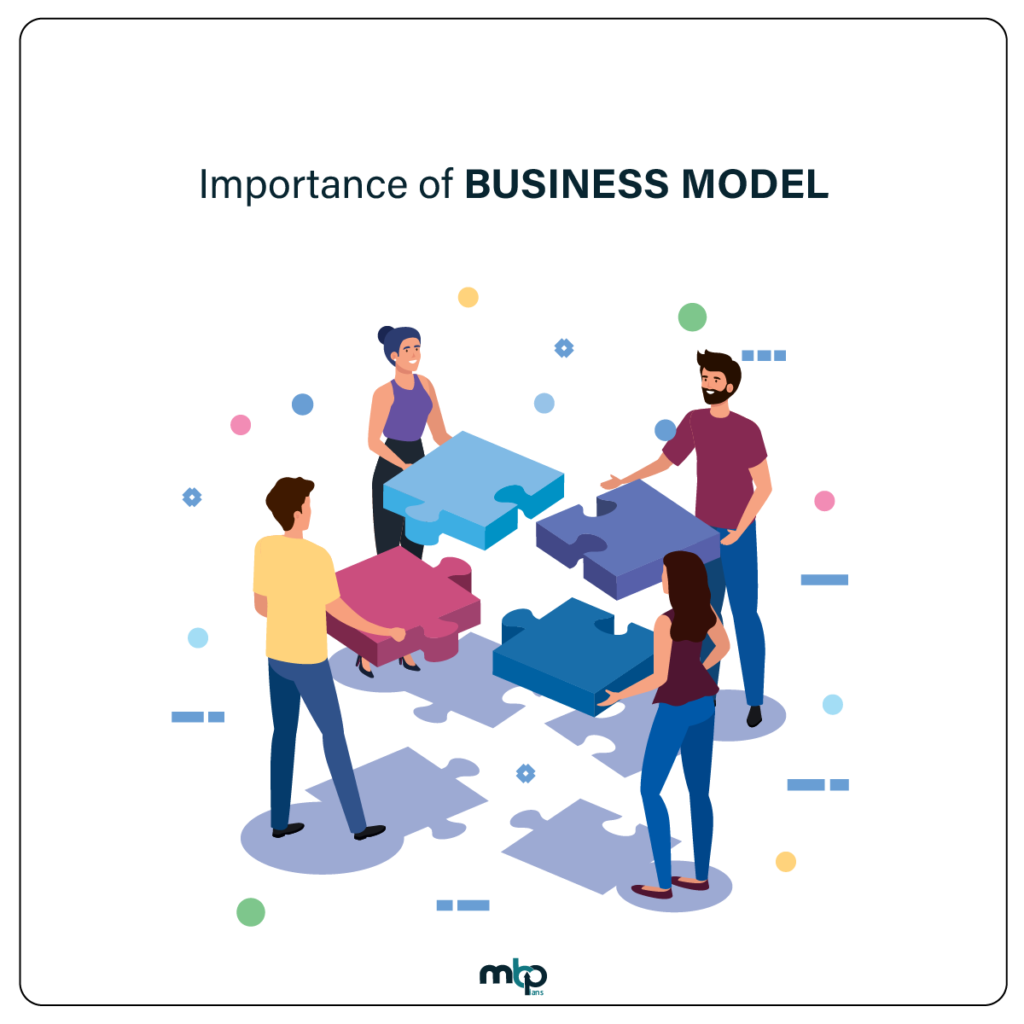A business model is a conceptual structure that explains the flow of the business, how a business operates and intends to achieve its goals.
It supports the viability of the business and provides a description of what and how will a company create value for its customers and deliver it to the market and most importantly, how will it makes money.
Any idea or business involves a long chain of functions to be performed to reach the market as a final product/service from its initial phase.

A business model describes what are the different best possible ways of operating a particular business and how an organization will fulfill its purpose; as well as helps you decide which model is best suited for your company that can further help you in analyzing the structure for cost and revenue streams of the company.
A business model should be able to interpret the project startup cost, target customers, market size, sources of financing for the business.
Every viable organization is built on a sound business model. In a nutshell, a business model describes how the pieces of a business fit together.
Why does the company require a business model?
Before moving forward with anything, a new business in development needs to analyze and determine the product/service that the company wants to offer in the market which would differentiate it from its competitors.
It needs to understand the variants involved in the products or services that they are willing to offer, its target market, market potential, and the operational activities.
A business model will clarify the picture of what you will be offering in the market and how will that be executed.
Earlier, when there weren’t many competitors in the market, entrepreneurs used to start a business and its business model used to evolve over time.
But with an increased number of players in the market, developing a business model beforehand has become almost a necessity to be able to achieve planned goals and targets, connect with stakeholders, and differentiate itself in the market.
Business modelling consists of different variants and verticals which describes the basis of flow of the business.
A well-defined business model can provide space to establish better strategies for business execution and plan for further expansion. It acts as a blueprint for business and a roadmap for its success (or failure).
A particular business model might limit your business activities to an extent but that limitation serves for the better purpose of the company.
